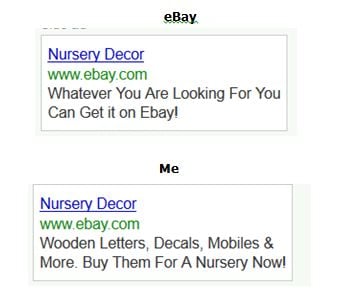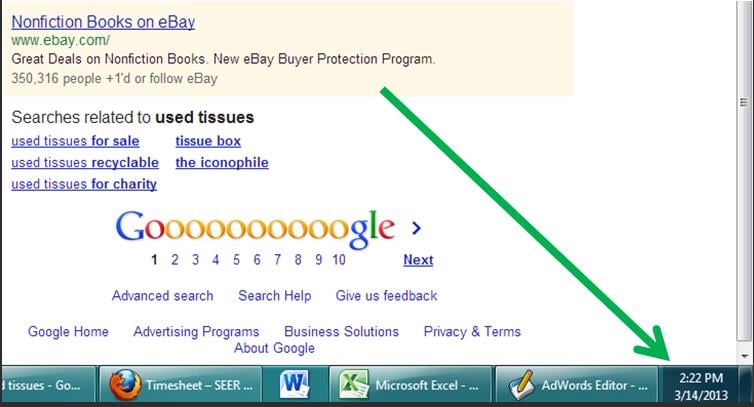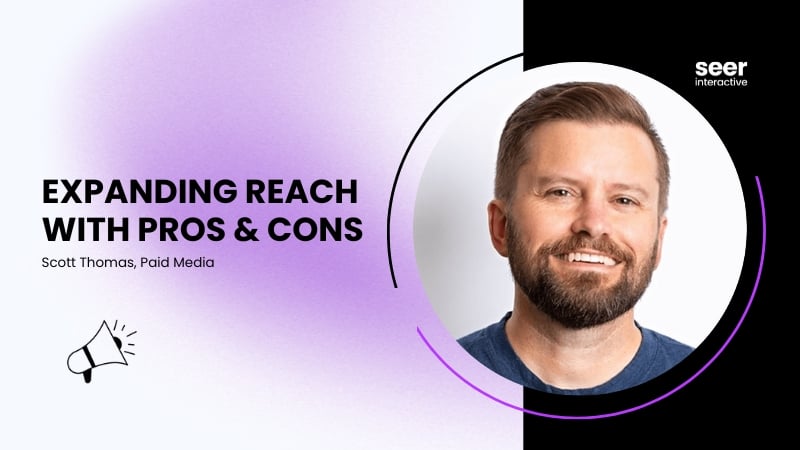On Monday, the Harvard Business Review posted an article that eBay has reached the conclusion that paid search doesn't work based on the findings of 3 eBay Research Labs analysts - Thomas Blake, Chris Noskos, & Steve Tadelis. While these gentlemen might be great researchers, who do bring up valid points, they are not PAID SEARCH MARKETERS, and there are numerous flaws and strengths within their conclusions. Let's dive into both.
For Paid Search Account Managers, it's easy for us to dive in and tear apart other accounts (insert your favorite broad match only meme here, I couldn't decide on my favorite) and that has been the initial reaction from many PPC managers. However, I think it's also important to call out some positives from Ebay's research:
1. Paid Search doesn't work for everyone – Even with the best PPC managers, sometimes paid search just doesn't work. However, before that conclusion is reached, it has to be evaluated from both the macro and micro level. 2. Paid Search Can Be A Great Start For SEO -One of the many reason SEER's SEO team loves & adores the Paid Search team is because we can provide them with data. We know what words convert, and those words can be a great start to their optimization efforts. And that's only one way Paid Search helps SEO (we PPC folks rock), as the article mentions there are definitely more. 3. Play Around – Not every account is going to flourish following best practices. It's important to play around – test geo targeted campaigns, test day parting recommendations, test everything. Don't just assume doing best practices will equal success. Sometimes SEERs best ideas, came from not wanting to follow the norms.
Now on to some of the negatives. As Larry mentioned in his Wordstream blog, eBay choose to ignore a lot of best practices. So much so, that people (not necessarily search marketers) created a new term eBad (definition: a term derived from bad eBay ads), a game, and a website full of awful eBay paid search ads. All can be found here. Since I'm pretty sure you can't buy used tissues, foot fungus, and dirty diapers, I couldn't agree more with Larry that adding negatives would do wonders. A massive negative list should have been implemented prior to launching, and for maintenance purposes alone, search queries should have been evaluated at least once a month.
Next, let's look at eBay's ads, which were pretty awful. Below are some of their most popular copy variations and what I see wrong with each, outside of DKI abuse.
Copy: Whatever you are looking for you can get it on eBay. Flaws: No CTA, Entirely Too Broad, No Unique Selling Points Fixes: • CTA help to direct a user to take an action. What am I supposed to do after I click your ad? • By making the ad copy too broad you are going to disappoint a person who clicks through and doesn't immediately see what you claim to be selling in your ad. • Unique selling points give users a reason to click on your vs. another. What makes your used Les Paul guitar better than Guitar Center's?
Copy: Looking for ____? Find exactly what you want today. Flaws: No CTA, No Unique Selling Points Fixes: • Address CTA and selling points as mentioned above
Copy: Buy it Cheap On eBay. Low Prices, New & Used. Flaws: Wasted characters on repetitive selling points, not tailored enough. Fixes: • You've already told me it was cheap, so why waste another 10 characters to tell me you have low prices. When you only have 70 characters, take advantage of them! • Address selling points as mentioned above
I realize with millions of products it is hard for eBay to create tailored ad copy. So here are some alternatives:
1.eBay is broken down into categories; why not use those to write more tailored ad copy. It took me ten seconds of looking at the Nursery Décor category page to come up with a better version of ad copy.

2. Find out what products generate the most revenue, and start optimizing there. Send them to a category page instead of your homepage, tailor the ad copy, and then see what happens! Forget trying to cover the whole gamut, start small.
Moving away from just failed keyword and ad copy strategies, where I really see eBay fail is in their lack of a defined overall strategy. Prior to launching any Paid Search campaign, you need to have a clear goal in mind and I really question eBay's:
1. eBay's brand awareness is already huge. Realistically, did it make sense to go after so many brand terms? In my opinion, no. If they wanted to get users who didn't know about eBay – go after terms that describe eBay. Bid on your competitors, and explain why you are better.
2. eBay likely had a budget most Paid Search Marketers would love to get their hands on. So why didn't we see eBay in cool beta tests, testing Google offers, etc. Did they really use their Google and Bing/Yahoo representatives to the best of their ability?
3. Individual eBay listings don't last forever. What was their strategy to tackle that?
Strategies are important for all clients, whether your budget is $5,000 or $55,000,000. I think if eBay rethought theirs and hired a paid search manager who was on top of our ever-changing industry, they would see drastic improvements across the board. But if eBay wants out, I'm okay with having one bottomless-budget advertiser out of the auction. I would like to point out two things though: your ads are still showing and used tissues are not the same as nonfiction books.

What are your thoughts (good and bad) on eBay's conclusion?

